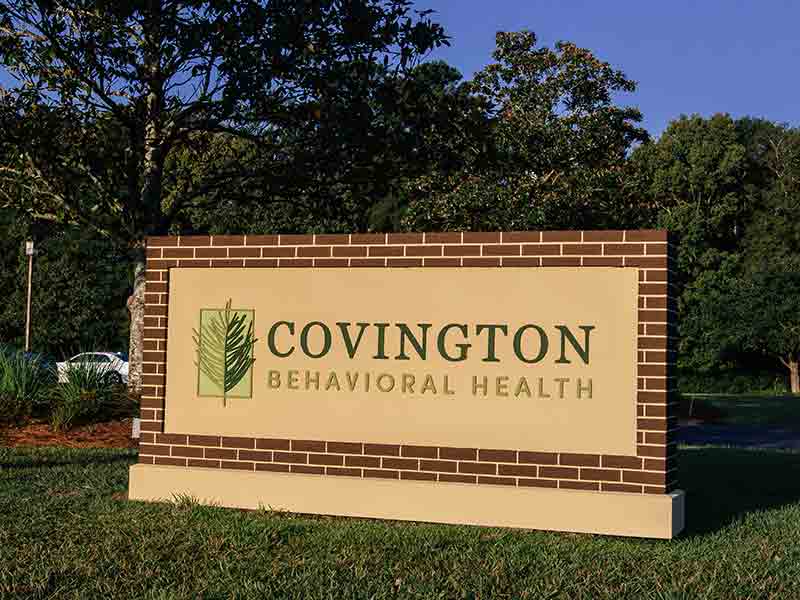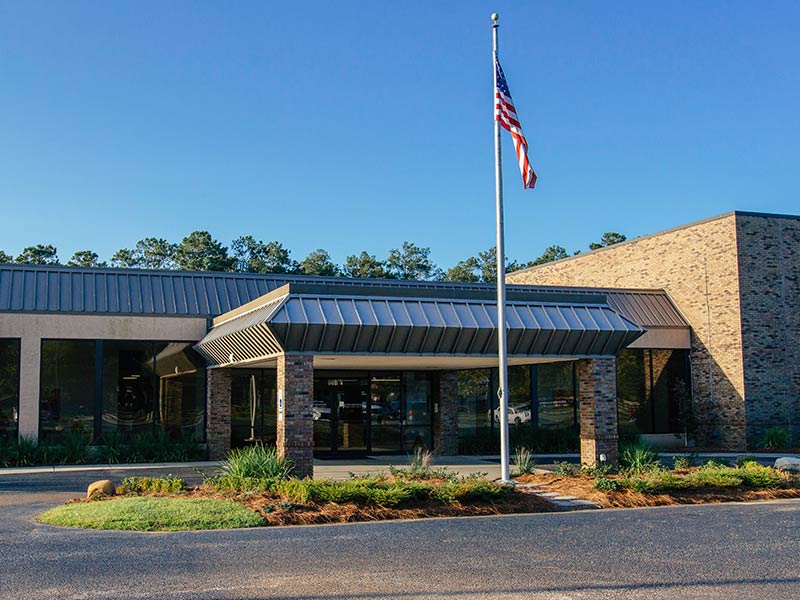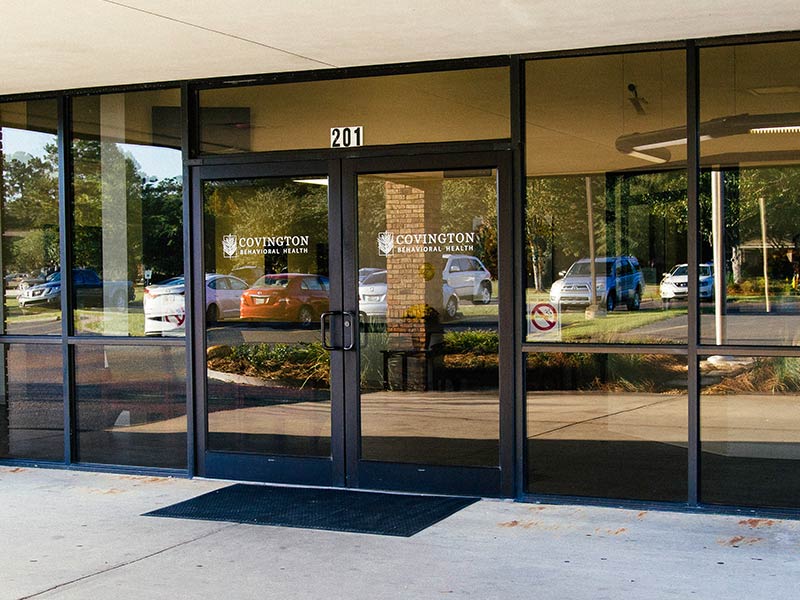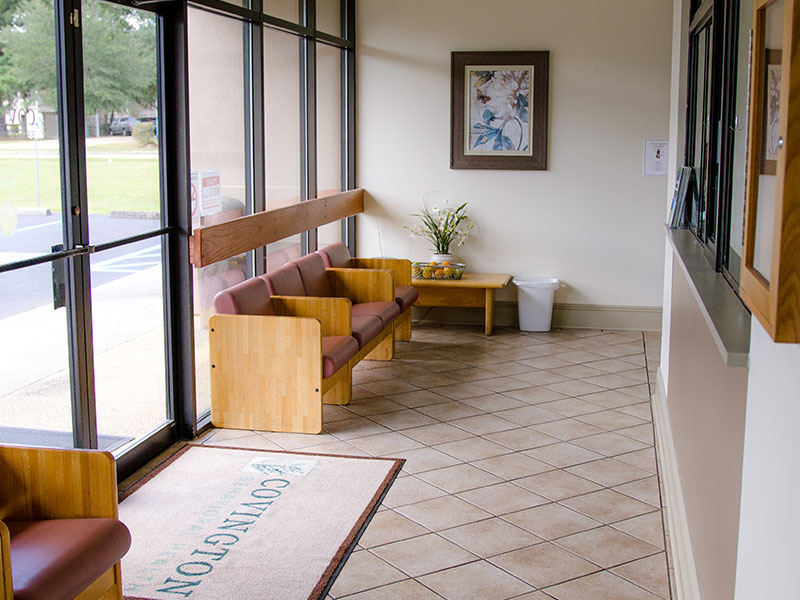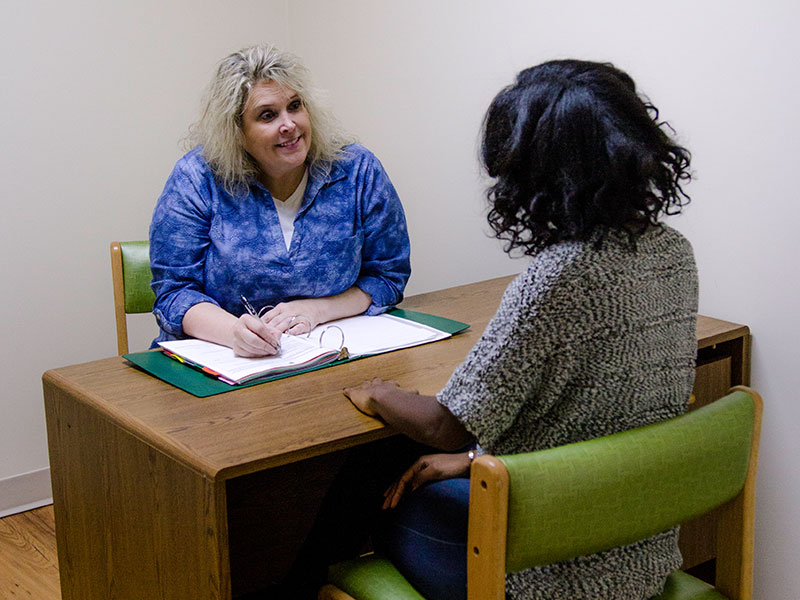At Covington Behavioral Health, individuals can receive expert care delivered by a team of compassionate and experienced professionals. With the help of our center’s dedicated treatment team, it is possible to learn to manage psychosis symptoms and live a healthier, happier life.
Understanding Psychosis
Learn about psychosis
Many people believe that psychosis is a mental health diagnosis, but it is actually a serious symptom of a few different mental health disorders. Psychosis occurs when an individual loses touch with reality or believes certain things to be true when they are not. This condition often accompanies disorders such as schizophrenia spectrum disorders or bipolar I disorder. In some cases, psychosis may also occur as a side-effect of substance use.
Hallucinations and delusions are the two forms of psychosis symptoms. Hallucinations occur when an individual sees, hears or feels things that do not exist. Delusions occur when a person holds unusual ideas or beliefs that do not make logical sense and are not part of that person’s identified culture. Delusions and hallucinations often result in strange behavior, disorganized thoughts, and difficulty communicating effectively with others.
Psychosis varies in scope and severity. Episodes of psychosis may last from a few days to a few weeks and may occur more than once. Without treatment at a hospital or treatment center, these episodes will eventually lead the individual to disconnect further from the outside world, hallucinations and delusions may worsen, and the individual may experience lasting physical and health issues. Thankfully, Covington Behavioral Health in Covington, LA, is well-equipped to treat adolescent and adult patients who are struggling with psychosis.
Characteristics
Characteristics of psychosis
Psychosis creates a number of behaviors and has some observable features. While every case varies, psychosis may include:
Hallucinations cause an individual to hear and see things that are not truly real. The person experiencing the hallucinations cannot simply will them to stop. The voices that are often heard in hallucinations differ from the individual’s internal dialogue and usually have a completely different personality and tone. Visions in hallucinations may include people, places, things, religious deities, or any number of visual stimuli that other individuals cannot see.
Delusions are beliefs that the individual holds that do not reflect reality. Often, delusions are things that could potentially hold a grain of truth, but they are simply too far from reality to be possible. Individuals that have delusions will continue to hold tightly to those delusions even when direct evidence proves them incorrect. Delusions may center around a number of different topics: beliefs that others are in love with the person, that he or she is exceptionally talented or magical, that catastrophes will occur, that outside forces are changing his or her health, or that people are conspiring against that individual. Severity of delusions is determined by the individual’s ability to accept reality when given evidence that the delusions are not possible.
Disorganized thinking occurs when a person with psychosis is unable to keep thoughts and communication orderly. Often, the person experiencing psychosis is thinking at an extremely rapid rate, and thoughts often do not get completed, speech jumps from topic to topic, and communication becomes very difficult.
Abnormal physical behaviors can appear in a variety of forms. A person experiencing psychosis may behave in unusual ways, such as engaging in childlike behaviors or becoming suddenly agitated and angry. In some cases, catatonic behavior may include sitting or standing in strange poses. Other behaviors may include echoing noises, staring, or repeated movements.
Negative Symptoms occur when a behavior that is normally seen in a person stops happening. Facial expressions may stop occurring, resulting in a flat, expressionless face. The individual may cut back on social interaction or begin speaking slowly or not speaking altogether.
Thankfully, with help from a quality treatment center of hospital, these symptoms can be managed and mitigated.
Causes and Risk Factors
Causes and risk factors for psychosis
Because psychosis can be caused by a number of different issues, and because research on the human brain is ever-developing, there are many working theories of the possible causes of psychosis. Most researchers believe that a number of risk factors may combine to increase chances of psychosis. Some of those factors include:
Genetic: Many mental illnesses have strong genetic ties. Individuals who have a family history of disorders that include psychosis are much more likely to experience psychosis as well. Chances increase if closer or immediate family members have experienced psychosis.
Physical: Some physical illnesses can lead to psychosis. Some types of psychosis in women may be related to postpartum hormones. Other types of psychosis that affect both men and women may be caused by illnesses such as kidney disease, hormone imbalances, autoimmune disorders, neurological conditions, and metabolic imbalances.
Environmental: Traumatic experiences, unexpected life change, excess stress, or even lack of sleep may bring on brief psychosis. Individuals with pre-existing mental health conditions may experience a worsening in psychosis while under stress.
Risk Factors:
- Substance use or substance abuse
- Poor coping skills
- Mental illness
- Exposure to trauma such as accidents, being a victim of crime, or sudden loss
- Limited or unhealthy social network, or poor social skills
- Recent birth of a child
- Exposure to poisonous substances or toxins
- Family members with mental illness
Co-Occurring Disorders
Psychosis and co-occurring disorders
Bipolar I disorder is a mood disorder that may lead to psychosis. Manic episodes present in bipolar disorder can lead to delusions and hallucinations if left untreated without help from a hospital or treatment center.
Schizophrenia is a well-known disorder that features psychosis symptoms as a characteristic symptom. The delusions and hallucinations related to schizophrenia make normal functioning very difficult for the person who struggles with this disorder and does not enter a hospital or treatment center for professional care.
Certain types of dementia can lead to psychosis in the later stages of illness. For instance, dementia due to Alzheimer’s disease may create paranoid delusions or even visual hallucinations during later stages.
Schizoaffective disorder is very similar to schizophrenia. However, schizoaffective disorder appears as a combination of schizophrenia and a mood disorder. In schizoaffective disorder, psychosis is usually quite debilitating if left help is not sought at a hospital or treatment center.
Postpartum psychosis, a rare disorder that is not the same as postpartum depression, affects women after the birth of a child. Surges of hormones or imbalances of hormones can impact normal brain functioning and result in psychosis that may be dangerous to both mother and child.
Signs and Symptoms
Signs and symptoms of psychosis
Psychosis can be alarming for both the individual in its midst and that person’s loved ones. While symptoms vary from person to person, there are some signs and symptoms to be aware of:
- Social isolation
- Self-injury
- Auditory, visual, or olfactory hallucinations
- Delusions
- Loss of interest in previously enjoyed activities
- Responding to people, places, or things that do not exist
- Disorganized speech or thoughts
- Poor hygiene
- Lack of emotion or excess emotion
- Unusual behaviors
- Depersonalization or derealization (feeling “out of body” or like things are not real)
- Depressed or anxious mood
Why Consider Treatment
Why consider treatment for psychosis at Covington Behavioral Health in St. Tammany Parish
Psychosis symptoms must be treated at a hospital or center immediately, as these symptoms can be dangerous. Individuals who are not violent or self-injuring may suddenly become volatile or self-destructive during an episode of psychosis.
Psychosis is a symptom of a number of mental health disorders, many of which can be debilitating. It is important to understand more about each individual and his or her particular psychosis in order to receive proper treatment. Inpatient treatment centers and hospitals offers a safe location in which an individual may be properly observed and assisted. Inpatient treatment centers and hospitals also offers each individual a team of medical professionals that have the resources to offer counseling, medication, and/or family support.
Because psychosis is potentially dangerous, it is absolutely vital to seek treatment at a hospital or center as soon as possible. Fortunately, psychosis is treatable. Support is available and signs of recovery are possible in as little as a few weeks.
At Covington Behavioral Health, our ultimate goal is to provide the focused, effective, and personalized care that can improve the quality of life for all who are entrusted into our care at our center. For more information about our center’s services, please do not hesitate to contact us at your convenience. We look forward to answering all of your questions and helping you determine if Covington Behavioral Health is the perfect place for you or your loved one.





